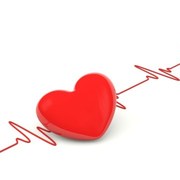 Photo: Getty Images
Photo: Getty Images
Looking for a new tongue twister? Then try saying this three times fast: postural orthostatic tachycardia syndrome. Whew! Don’t worry if you found this to be a mouthful – it’s just as hard to type!
While postural orthostatic tachycardia syndrome, or POTS, may be a mouthful to say, it’s a heart condition primarily affecting women. Approximately 500,000 women in the United States suffer from POTS. While POTS can occur at any age, according to the National Heart Lung and Blood Institute, it’s more common in young women. The majority of POTS patients in the U.S. – approximately 80 percent - range in age from 15 to 50 years.
So, what exactly does POTS do? Well, imagine the following scenario: it’s Friday night and you’re lying on the couch watching a movie on TV with your family. During the commercial, you jump up to grab some popcorn from the kitchen. As you stand, you become light headed and dizzy. Your heart rate increases and becomes very rapid – more than 120 beats a minute. You begin to see spots and start to faint. The only thing that relieves these symptoms is to lie back down. In addition, you’re abnormally tired and experience unusual fatigue. You’re also limited in how long you can stand at a time or exercise because of POTS symptoms. This is life with POTS.
POTS symptoms occur because even though the heart rate is high, blood flow to the heart is reduced upon standing. Symptoms may be worse just before the menstrual cycle. Often, the first episode does not occur until pregnancy, although other triggers such as surgery or some other type of trauma and illness may contribute to POTS.
Currently, there isn’t a “cure” for POTS or even a single treatment approach. Treatment options range from dietary changes such as avoiding alcohol, heavy meals, and adding additional salt. Others are able to treat POTS symptoms by tilting the bed so that the head is elevated during sleep. Other techniques designed to raise blood pressure before getting standing, such as drinking two glasses of water, may be effective. Medications, such as beta receptor blockers, fludrocortisone and midodrine, may be prescribed. While exercise is difficult for POTS patients, there is some indication that exercise may help alleviate symptoms.
Sources:
Exercise Training Program Improves Outcomes In "Grinch Syndrome" Patients, Medical News Today, 21 Jun 2011, http://www.medicalnewstoday.com/releases/229124.php
NINDS Postural Tachycardia Syndrome Information Page, National Heart Lung and Blood Institute, 12 Mar 2009,
Dysautonomia, Dysautonomia Information Network, http://www.dinet.org/pots_an_overview.htm
Reviewed June 29, 2011
Edited by Alison Stanton





Add a Comment4 Comments
Dear Anonymous---
While you are partially correct however many cardiologist help to diagnose and treat this illness.
POTS does affect the autonomic nervous system,the system in your body that works automatically without thinking. Nice article.
July 4, 2011 - 7:11amThis Comment
POTS IS an autonomic disorder under the general heading of Dysautonomia (which involves many other different types of orthostatic intolderance). Though it involves the heart few patients actually have heart defects. And the "Grinch" article has long been proven wrong; there are lots of new articles and studies being written which you can check out at dinet.org. Cardiologists, Rheumatologists, Endocrinologists, Neurologists, Electrophysiciologists...all these types of doctors diagnose this disorder and treat it. The most common way to dx is with a Tilt Table Test (TTT) and a sweat test (as patients often have abnormal sweating). Every patient salt loads and typically takes a med, like Florinef, to raise their BP if it's tolerable...lots of patients have a difficult time tolerating meds.
POTS specifically affects the autonomic system causing blood pressure and heart rate to not match meaning the heart rate typically jumps past 120 bmp and blood pressure doesn't rise appropriately with it, often falling which is what causes the patient to pass out. But that's only a portion of the problem, autonomic dysfunction also causes additional issues such as motility, breathing, cerebral hypoxia, temperature, crippling fatigue, pain, blood pooling.... I could go on for pages.
Sure it's easy to say it's a "heart problem" for a layman's term but it's SO much more and rather insulting, to those of us who suffer from this disabling condition, not to include the correct information. Again, visit dinet.org for proper details.
July 4, 2011 - 9:43amThis Comment
Hello Soundandvision,
Firstly, I am so sorry that you are one of the people that suffer with this condition. From what I read, it sounds brutal. I suffer from an autoimmune disorder and empathize with anyone else in a similar position living with a condition that interferes with our lives.
This article was certainly not meant to insult anyone with this disease and I am so sorry that you found it offensive - that was certainly not my intent and I do apologize. Our articles are limited to approximately 400 words and it is often somewhat of a challenge to capture all the complexities and nuances of a condition in that space.
I very much appreciate your first-hand insight. I visited www.dinet.org and it is an excellent resource for this condition. Since you live with this condition, have you considered writing a share so that others might benefit from your experience? If you do, please send me a email as I would be interested in hearing your thoughts.
July 4, 2011 - 9:39pmKind regards, Mary.
This Comment
Correction --> POTS is not a heart condition. It's an autonomic nervous system disorder. There are heart symptoms, but the heart itself is generally healthy.
June 30, 2011 - 7:26amThis Comment